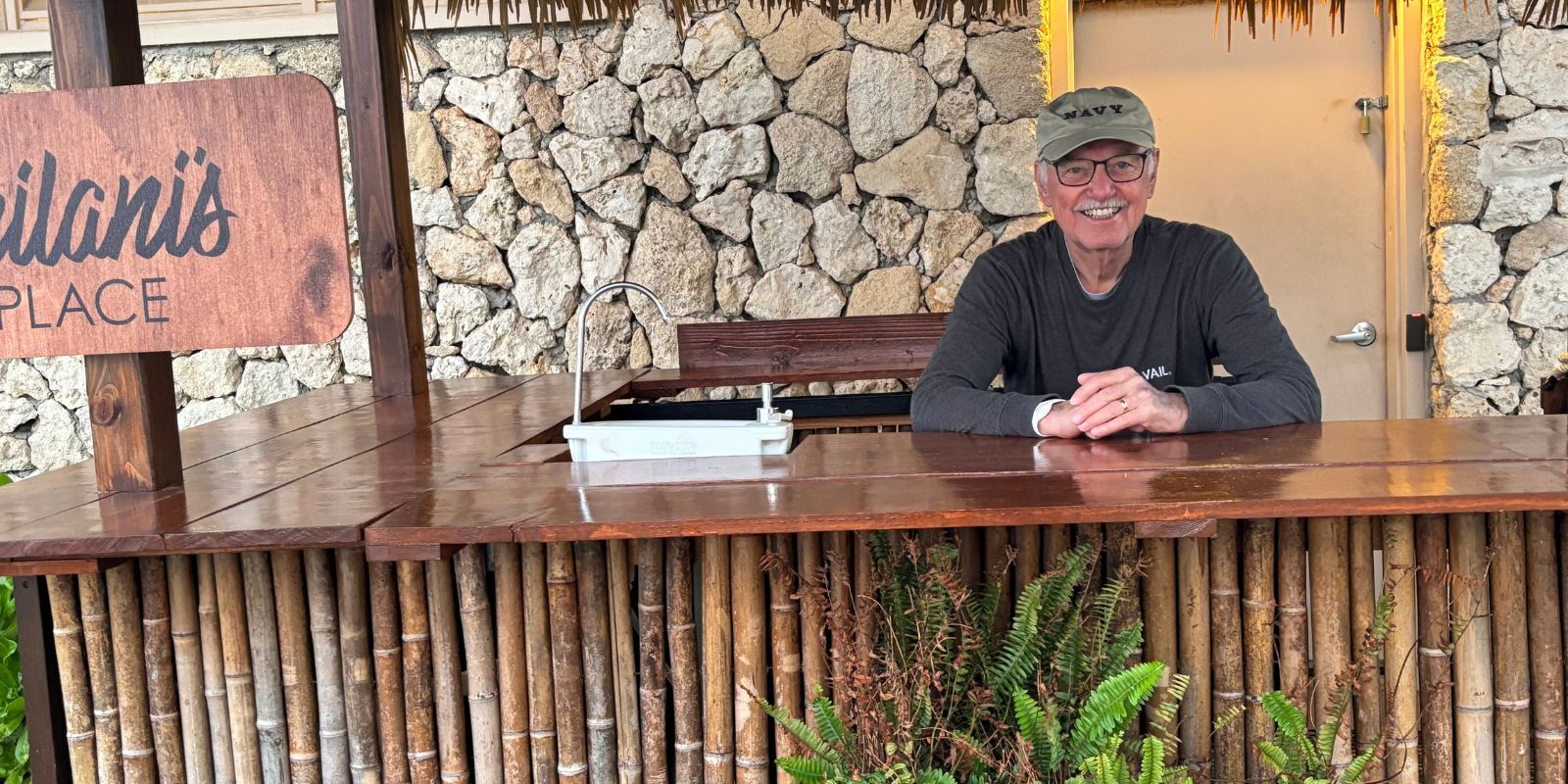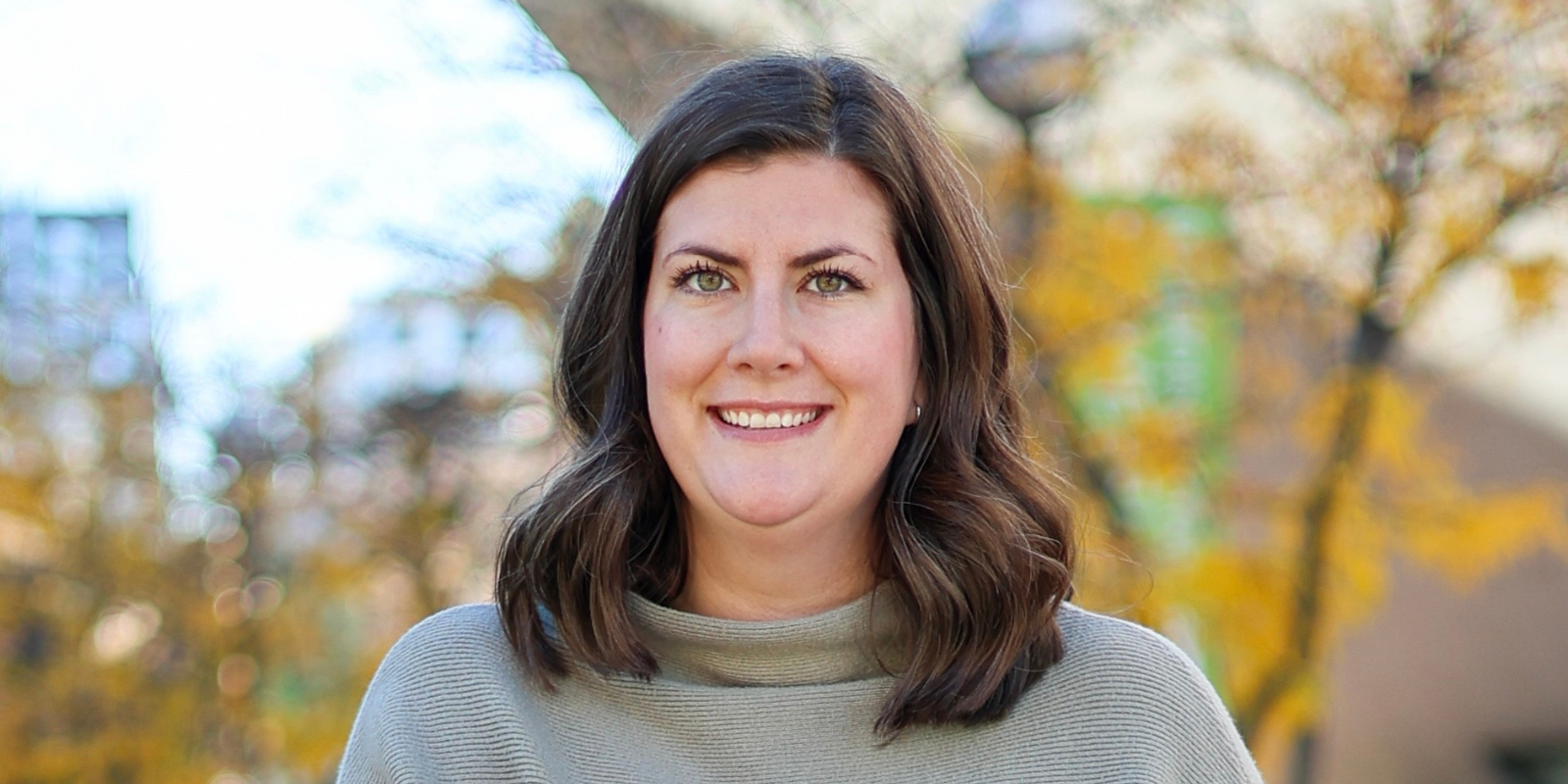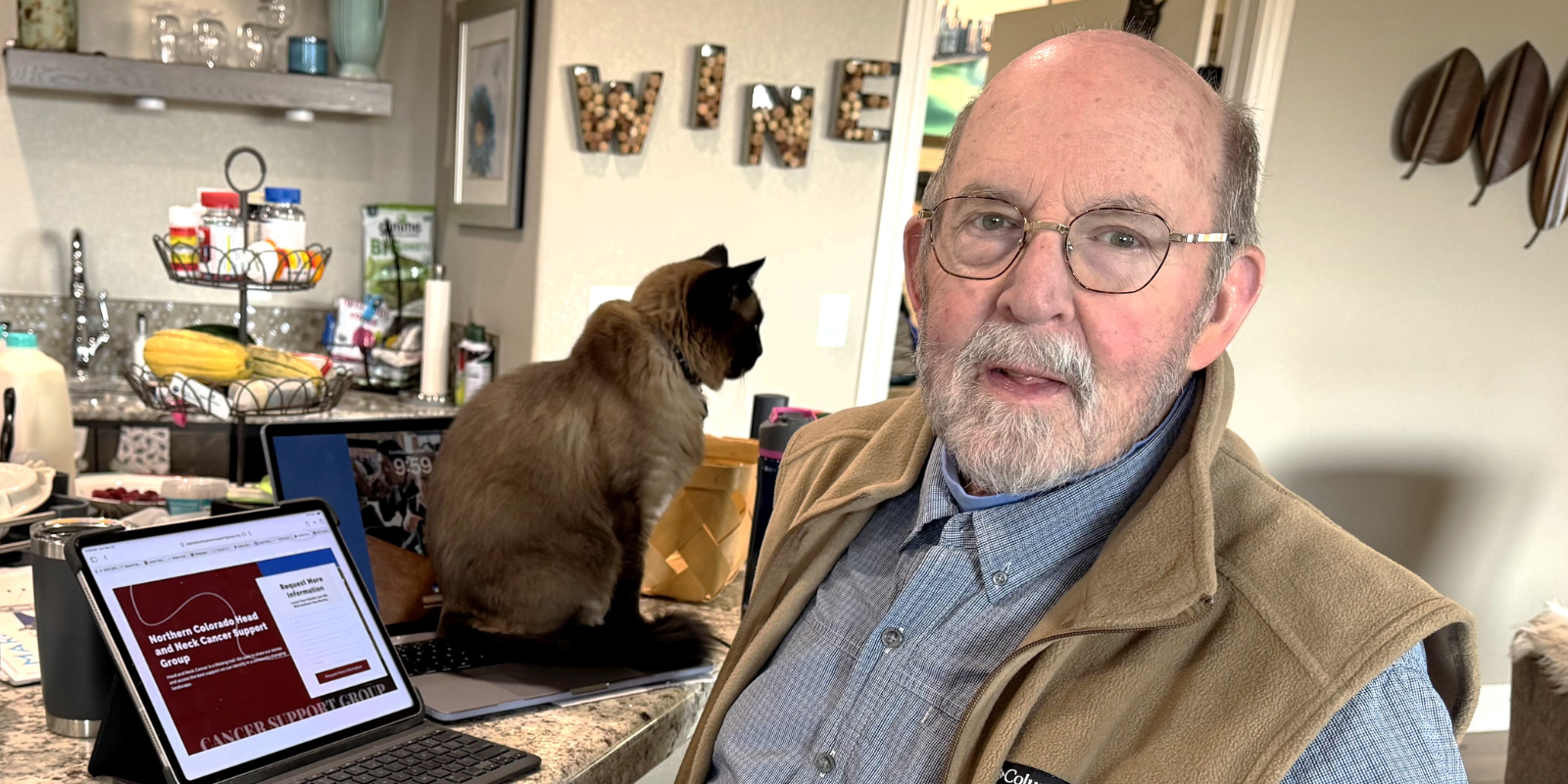Gabriel Charpentier began experiencing symptoms of stomach discomfort and fatigue at 34. Despite negative tests, he advocated for a colon cancer scan, leading to his diagnosis and participation in an immunotherapy clinical trial. His oncologist, University of Colorado Cancer Center member, Alexis Leal, MD, highlights the importance of clinical trials and the remarkable response Gabriel had to immunotherapy.
Transcript of video:
Charpentier: Originally I was born in St. Paul, Minnesota, met my now wife when I was 24. I've been a chef for probably 30 years now - trained in France. I started first having symptoms in 2009. So I was 34. A lot of stomach discomfort all the time, easily fatigued, my weight was fluctuating a lot. We went through all these tests and everything eventually came back negative. And I said, "Can we just scan for colon cancer?" I went through the standard lines of treatment, surgery, chemotherapy, clear scans, everything was good. And then we found an enlarged lymph node. I literally went through the directory at UC Health and I chose Dr. Leal.
Leal: The pace of his disease picked up quite a bit and he had spread of disease to multiple places in his body. This is a CT scan, his baseline screening scan. And these darker spots are spots in the liver that are tumor. Again, all of those little dots, all of those just tiny lung nodules throughout both lungs.
Charpentier: And that's when we decided that let's start looking at immunotherapy trials. Because we've done surgery, I've done radiation, I've done chemotherapy, nothing was stopping things.
Leal: Clinical trials allow patients the opportunity to get access to a drug that they might not have access to otherwise, that might help their care, help them on their cancer journey. During the screening process, patients are being seen and undergoing testing to ensure that they're a candidate for the clinical trial.
Charpentier: We were excited to get into an immunotherapy trial. It wasn't a colon cancer specific trial. It was just a solid tumor specific immunotherapy.
Leal: The most effective treatment that Gabe has been on thus far has been this immunotherapy study that Gabe has been participating in. And he has really had just a phenomenal response.
Charpentier: Cancer shrank at 84%.
Leal: He had resolution of really almost all of the sites of disease. The scan on the left side, this is one of his most recent CT scans. And those areas are now gone. And this is a comparison CT to a similar area with no evidence of tumor throughout the lungs. This is what normal lung looks like.
Charpentier: I don't know what to say besides thank you. She's been incredibly supportive of me as a patient.
Leal: My hope for him now is that we can put him on a treatment holiday and he can have time off treatment where he can work and spend time with his family and live life.
Charpentier: My biggest kind of advice would be find someone that will listen and work with you. Enjoy the time you do have with your family and loved ones because it's important.



